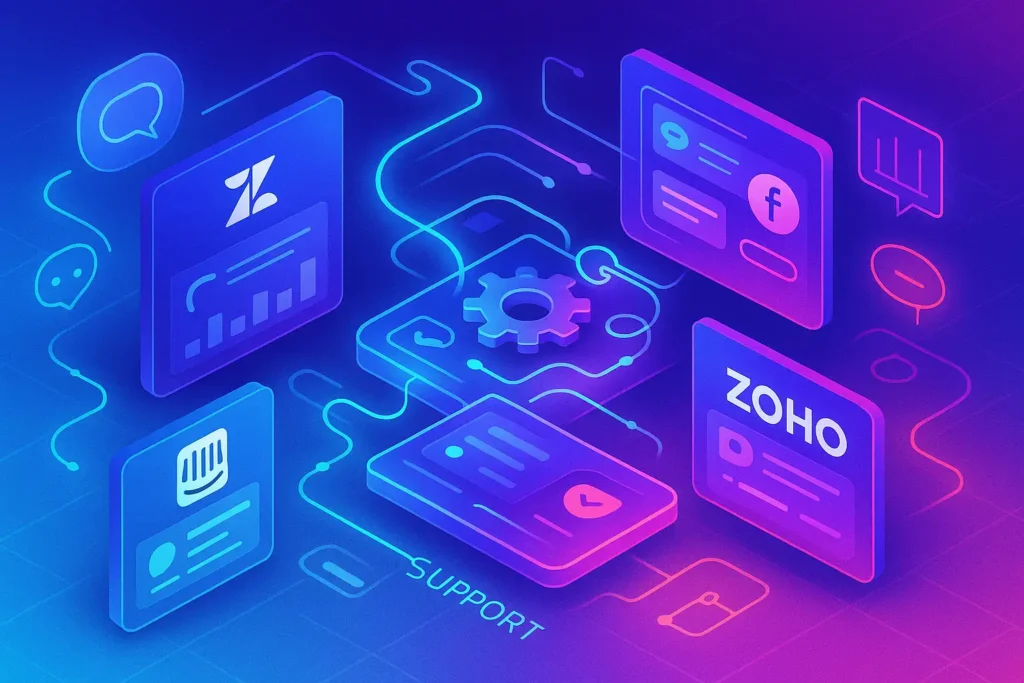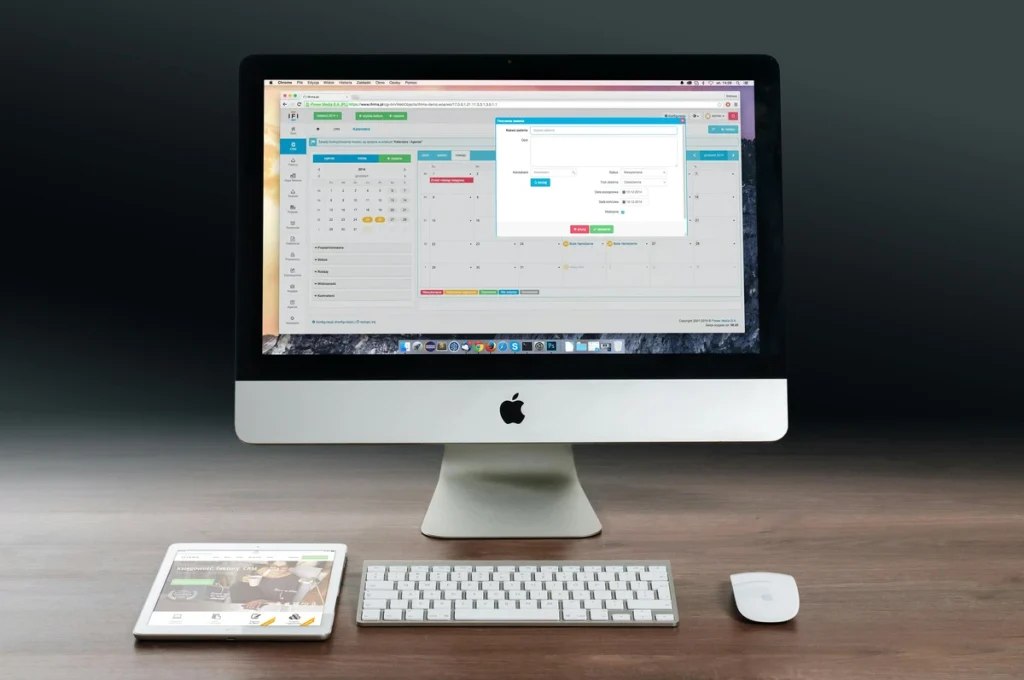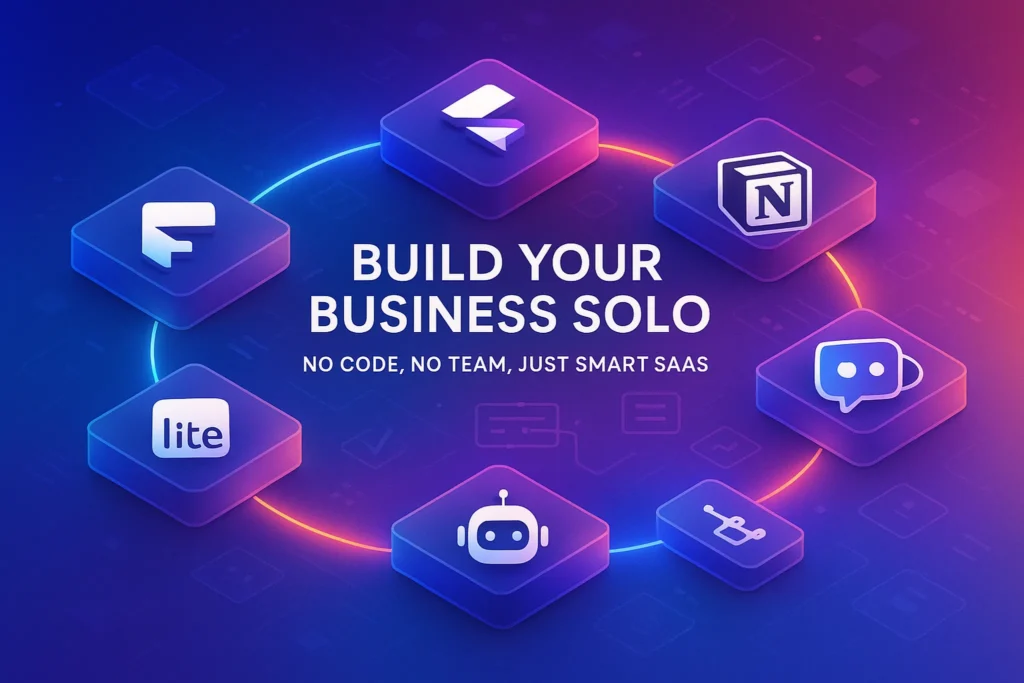🌟 Why Customer Support Defines Brand Success in 2025
In 2025, customer support is no longer a back-office function—it is a core part of marketing and brand identity. Every interaction a customer has with your support team influences how they perceive your business. A fast, empathetic, and efficient response can turn a frustrated user into a loyal advocate, while slow or robotic replies risk damaging your brand’s credibility.
Modern companies understand that support doesn’t just solve problems; it drives retention and fuels long-term growth. In fact, research shows that brands with excellent customer service outperform competitors by as much as 80% in repeat business. That’s why choosing the right helpdesk software has become a strategic decision, not just an operational one.
If you’ve already been exploring automation tools to scale marketing workflows or experimenting with AI writers to supercharge your content, then customer support software is the natural next step to complete your post-sale journey. Let’s dive deep into how it connects to marketing and which tools stand out in 2025.
🎯 The Role of Customer Support in Modern Marketing
Customer support and marketing might seem like separate teams, but in reality, they work as two halves of the same customer experience. Marketing attracts customers, while support keeps them happy and engaged. Without support, marketing efforts are like filling a leaking bucket—you bring in new leads, but they eventually slip away due to poor experience.
This role has expanded significantly with digital-first consumer behavior. Today’s buyers expect 24/7 assistance, quick resolutions, and personalized interactions. They also prefer multiple touchpoints: live chat on websites, in-app support, email follow-ups, and even AI-powered knowledge bases. Meeting these expectations requires tools that are more sophisticated than email inboxes or spreadsheets.
Forward-looking businesses already treat customer support software as part of their brand storytelling. Just like you’d carefully craft content repurposing strategies to maximize reach, the way you manage customer queries amplifies (or undermines) your brand promise. Strong support tools integrate with CRM and marketing automation platforms, creating a seamless loop where every customer touchpoint is tracked and optimized.
🛠️ Key Features to Look for in Helpdesk Software
Not all helpdesk platforms are created equal. Choosing the right one requires understanding which features will directly impact your customer experience. While every tool markets itself as “the best,” the practical differences often lie in how well they execute core functions.
The essentials include ticket management that keeps your support team organized, multichannel communication so customers can reach you wherever they prefer, and automation to handle repetitive requests without draining resources. Integrations are another must-have—your helpdesk should connect smoothly with marketing tools, payment systems, and even AI analytics to provide a unified customer view.
Security and scalability also matter. A small startup might get away with lightweight tools, but growing businesses need platforms that scale to handle thousands of conversations without friction. Add in analytics dashboards, customizable workflows, and AI-assisted suggestions, and you get a system that doesn’t just respond to problems but actively improves customer journeys.
In short, picking software with the right features is like choosing the future of work tools for your team—it determines how effectively you can balance human creativity with automation.
🏆 Top Customer Support Platforms in 2025 (Roundup)
Zendesk
Zendesk remains a leader for enterprise-grade customer support. Its strength lies in robust ticket management, AI-driven insights, and deep integrations. While its pricing is on the higher side, large organizations value its ability to handle complex workflows across departments.
Freshdesk
Freshdesk appeals to businesses that want simplicity without sacrificing power. It offers multichannel support (email, chat, phone, social media) in an intuitive dashboard. The gamified agent interface also motivates teams by tracking performance in real time.
Intercom
Intercom has carved out a niche as the go-to tool for conversational support. Its strength lies in proactive messaging, chatbots, and personalized in-app interactions. SaaS startups and digital-first brands especially love Intercom for creating seamless, on-brand conversations.
Zoho Desk
Zoho Desk is a cost-effective choice with surprisingly strong features. It fits well for small to mid-sized businesses looking for omnichannel support without the heavy price tag. Its tight integration with the Zoho ecosystem makes it ideal if you’re already using Zoho CRM or marketing tools.
Help Scout
Help Scout takes a customer-centric approach by making conversations feel like emails rather than tickets. It’s beloved by customer-centric startups and businesses that want to humanize their support while still enjoying automation and reporting features.
⚡ Ready to Build Smarter Support Workflows?
Try tools like Zendesk, Freshdesk, and Intercom to scale your support game. Automate tickets, delight customers, and turn support into your growth engine.
⚖️ Comparison Layer: Breaking Down the Differences
| Platform | Best For | Strengths | Weaknesses | Price Range |
|---|---|---|---|---|
| Zendesk | Enterprises | AI-driven insights, deep integrations | Higher pricing | $$$ |
| Freshdesk | SMEs & Teams | Multichannel, intuitive UI | Can feel less customizable | $$ |
| Intercom | SaaS Startups | Conversational AI, proactive support | Expensive at scale | $$$ |
| Zoho Desk | SMBs | Affordable, Zoho ecosystem | Interface less sleek | $ |
| Help Scout | Startups & SMBs | Humanized support, simplicity | Limited enterprise scalability | $$ |
This comparison illustrates how each tool caters to a specific audience. For example, a small business exploring emerging AI trends might prefer Zoho Desk for affordability, while a SaaS startup scaling globally may lean toward Intercom for personalized, AI-driven chat.
🔮 The Future of Customer Support Software
Looking ahead, customer support will increasingly blur the line between human and AI interaction. Tools will use machine learning not only to suggest responses but also to predict customer needs before they articulate them. Voice AI and video chat are also gaining traction, allowing more humanized interactions at scale.
Integration with workflow automation platforms will be critical. Imagine linking support tickets with top automation tools for marketers, triggering proactive email campaigns when a support case is closed. Or envision AI that analyzes support queries to suggest new blog posts, guiding your content repurposing strategy with real customer pain points.
Ultimately, the future isn’t about replacing humans with bots—it’s about creating a hybrid model where AI handles repetitive work while humans deliver empathy. Companies that embrace this balance will not only cut costs but also strengthen their brand reputation in an increasingly competitive market.
Want More Smart Support Insights?
Subscribe to our free newsletter and get weekly updates on marketing tools, automation hacks, and future-ready strategies—directly to your inbox.
No spam. Only actionable content to help you scale smarter.
🧩 Use-Case Layering (Real-World Scenarios)
Zendesk – Enterprise Case:
A global SaaS provider with thousands of daily tickets relies on Zendesk to automatically route issues across regions. This ensures that European users aren’t waiting for U.S. support hours.
Freshdesk – Startup Case:
A 15-person e-commerce brand uses Freshdesk to unify email, chat, and Instagram DMs into one dashboard. Agents spend 30% less time switching platforms.
Intercom – SaaS Case:
A productivity app integrates Intercom to guide new users inside the app. Automated onboarding messages reduce churn by 18%.
Zoho Desk – Agency Case:
A mid-size marketing agency leverages Zoho Desk’s affordable omnichannel support while syncing directly with Zoho CRM, keeping sales and support aligned.
Help Scout – Nonprofit Case:
A volunteer-based nonprofit prefers Help Scout because it feels personal. Volunteers get responses that look like emails, not tickets, keeping conversations human.
⚖️ Micro-Comparison Sections
Zendesk vs Freshdesk
Zendesk is ideal if you need deep integrations and analytics at scale, but Freshdesk shines when you want a smoother learning curve and multichannel support without enterprise costs.
Intercom vs Help Scout
Intercom delivers advanced conversational AI for proactive engagement, while Help Scout focuses on empathy-driven simplicity. Startups that prioritize “customer warmth” often prefer Help Scout, while SaaS firms scaling fast pick Intercom.
📈 ROI & Business Impact
Customer support isn’t just cost—it’s revenue retention. Brands with strong support report 81% higher repeat purchase rates. For example, improving first-response time from 12 hours to 2 hours can increase retention by 20%.
If your SaaS charges $50/month and has 5,000 customers, retaining even 5% more users equals $12,500 extra recurring revenue each month—far more than the software subscription costs.
🔗 Integration Spotlight
The most powerful helpdesk tools connect seamlessly:
-
With CRM, ensuring support data enriches sales outreach.
-
With marketing automation, triggering follow-ups when a ticket closes.
-
With AI analytics, identifying frequent pain points that inspire new tutorials or blog posts for your content strategy.
For example, pairing Intercom with automation tools allows a closed support ticket to trigger a personalized email nurturing sequence.
🔮 Future Scenario Box (2030 Vision)
By 2030, customer support will evolve into hybrid AI-human ecosystems. Imagine:
-
AI detecting frustration in a customer’s tone and escalating instantly to a senior agent.
-
Voice AI providing real-time resolutions while logging data into the CRM.
-
AI recommending upsells during support chats, turning cost centers into profit engines.
This doesn’t replace humans—it augments them, giving them context and freeing time for empathy-driven conversations.
✅ Quick Decision Framework (Mini Checklist)
Budget Fit
-
$ → Zoho Desk
Team Size
-
1–10 → Help Scout or Zoho Desk
-
10–100 → Freshdesk
-
Enterprise → Zendesk or Intercom
Channel Needs
-
Email-only → Help Scout
-
Multichannel (chat, social, phone) → Freshdesk or Zoho Desk
-
In-App AI chat → Intercom
🧠 Nerd Verdict
Customer support software has officially graduated from being a “nice-to-have” to a business-critical tool. The winners in 2025 will be brands that treat support as an extension of their marketing, not as a cost center. Whether you’re a small startup looking for affordable simplicity or an enterprise managing global teams, there’s a platform designed for you.
My recommendation: don’t just pick the tool with the most features. Choose the one that aligns with your brand’s vision, your team’s workflow, and your customers’ expectations. Support is marketing, and the right software is your amplifier.
❓ Nerds Ask, We Answer
💬 Would You Bite?
Do you believe customer support should be seen as part of marketing rather than just operations? Which platform from our roundup fits your team’s culture best?



